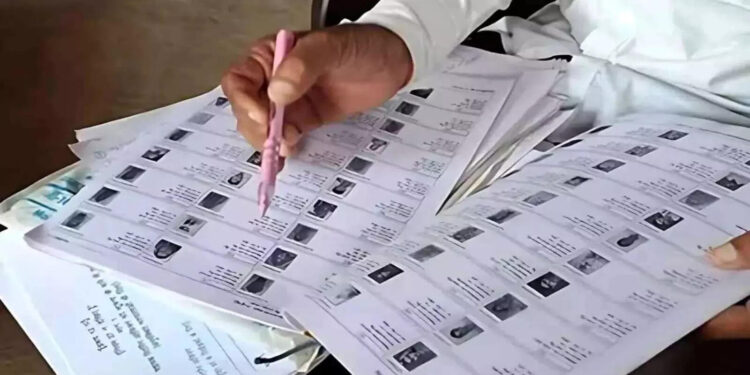The Election Commission of India is expected to announce the Special Intensive Revision (SIR) of the electoral rolls for Assam today. The announcement will be made during a press conference scheduled at 4:15 PM today. According to reports, the SIR will not only cover Assam but also other states and union territories where elections are due, including West Bengal, Kerala, Tamil Nadu, and Puducherry.
In Assam, the SIR process is likely to commence from November 1. The voter list of 2005 will serve as the basis for this revision. The Election Commission has already completed the training program for Booth Level Officers (BLOs) to facilitate the SIR. Starting November 1, BLOs will conduct door-to-door visits to collect and verify voter information.
Notably, Bihar was the first state in India to undertake the SIR process. Following the revision, over 40 lakh names were removed from Bihar’s electoral rolls. In Assam, the SIR aims to ensure the accuracy and transparency of the voter list by correcting errors, removing names of deceased or absent voters, and adding new eligible voters.
What is Special Intensive Revision?
The Special Intensive Revision (SIR) is a rigorous, time-bound exercise conducted by the Election Commission of India to update and purify electoral rolls by verifying voter details and removing ineligible entries, such as duplicates, deceased individuals, or those who have migrated. Unlike routine annual revisions, SIR involves extensive door-to-door verification by Booth Level Officers (BLOs) to ensure only genuine, eligible citizens remain on the voter list. In Assam, the SIR will use the 2005 electoral roll as a reference, cross-checking details like age, address, and identity documents while enrolling new voters, particularly those turning 18. The process aims to enhance the credibility of the voter list, addressing issues such as fraudulent entries and ensuring electoral integrity, particularly in states with complex demographic challenges, like Assam.
Bihar, the First State to Undertake SIR
Bihar set the precedent for the SIR earlier in 2025, becoming the first state in India to implement this intensive voter list revision ahead of its Assembly elections. Launched in June, Bihar’s SIR involved house-to-house verification by BLOs, resulting in the removal of approximately 47 lakh names from the electoral rolls due to deaths (20 lakh), permanent migration (15 lakh), and duplicate or fraudulent entries (12 lakh). Additionally, 21.53 lakh new voters were enrolled, reflecting a focus on including young voters. However, the process faced criticism from opposition parties, who alleged bias and exclusion of marginalized communities, leading to Supreme Court directives for prior notices before deletions. Assam’s SIR incorporates these lessons to ensure fairness and transparency.
Implementation and Safeguards in Assam
The SIR in Assam aims to eliminate duplicate entries, deceased voters, and ineligible individuals while enrolling new voters, particularly young adults turning 18. Residents will need to provide documents like Aadhaar, ration cards, or birth certificates during the verification process, which will cover all 126 Assembly constituencies. The 2005 voter list, accessible on the CEO Assam website, serves as the reference, with digital platforms like the Voter Helpline app and NVSP portal facilitating updates. Lessons from Bihar’s SIR, where controversy arose over transparency, have led to safeguards like a claims and objections period to address grievances.
Challenges and Inclusivity Measures
Given Assam’s complex demographics and history of citizenship debates, amplified by the National Register of Citizens (NRC), the SIR is critical. The state government’s push to integrate NRC data has raised concerns about potential exclusion, particularly in border districts like Dhubri and Sribhumi. The ECI has prioritized inclusivity, with BLO training emphasizing sensitivity toward tribal and tea garden communities. Helpdesks and online tools will support voters in remote areas, ensuring accessibility.
The success of Assam’s SIR could shape its 2026 elections and serve as a model for other states. Political parties and civil society are closely monitoring the process, urging fairness and transparency. As BLOs prepare for house-to-house visits starting November 1, the ECI aims to deliver a cleaner, more credible voter list to strengthen India’s democratic foundation.





